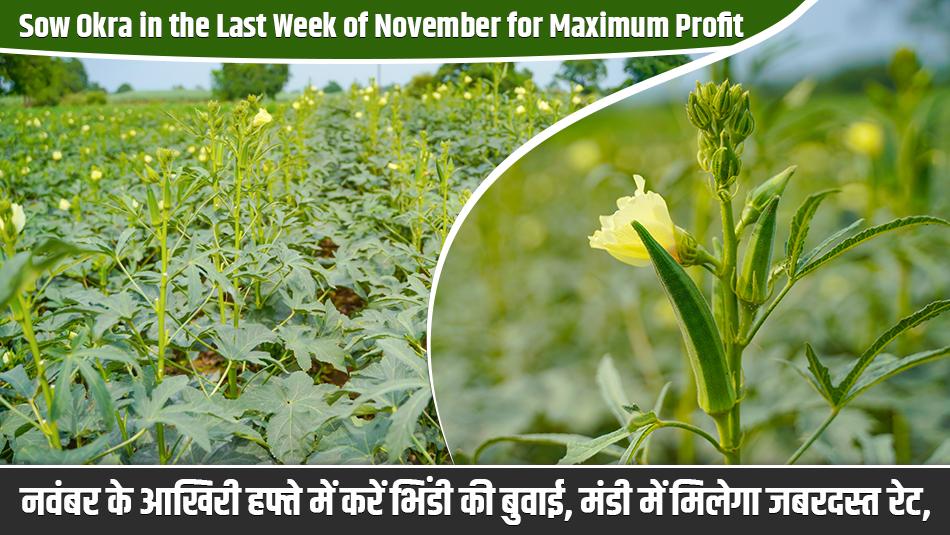
For farmers looking to boost their income through vegetable cultivation during the Rabi season, okra (bhindi) is emerging as a highly profitable crop. Agricultural experts say that okra sown in the last week of November matures during winter and early summer, a period when market arrivals remain low but consumer demand stays high. As a result, farmers can easily fetch ₹60–₹70 per kg, ensuring better returns at minimum cost.
All these factors together significantly increase farmers’ income and make okra a stable and rewarding crop.
Okra requires well-drained, loose, and fertile soil for optimum growth. Preparing raised beds helps in improving both yield and quality. After sowing, a light irrigation is recommended, while avoiding excess water to prevent root rot and fungal issues.
Using certified seeds is crucial for achieving better yield and uniform quality. Farmers should choose varieties that are suitable for their region and soil conditions to maximize output.
According to agricultural specialists, seeds from brands like Advanta, Nunhems, and Syngenta have shown consistently good results. Depending on the variety and packaging, seed prices generally range from ₹1,200 to ₹6,000 per kg.
By the time this winter-sown okra reaches the market, prices are expected to remain significantly higher than most other vegetables. Farmers can earn thousands of rupees per bigha in additional income. With strong yields, this crop also contributes to strengthening the rural economy.
➡ Farmers who follow the right timing and scientific practices
➡ Use quality seeds, proper irrigation and careful crop management
…can easily earn up to three times more profit from winter okra cultivation.
This is why the last week of November is considered the golden window for sowing okra and ensuring maximum returns.
Latest Update